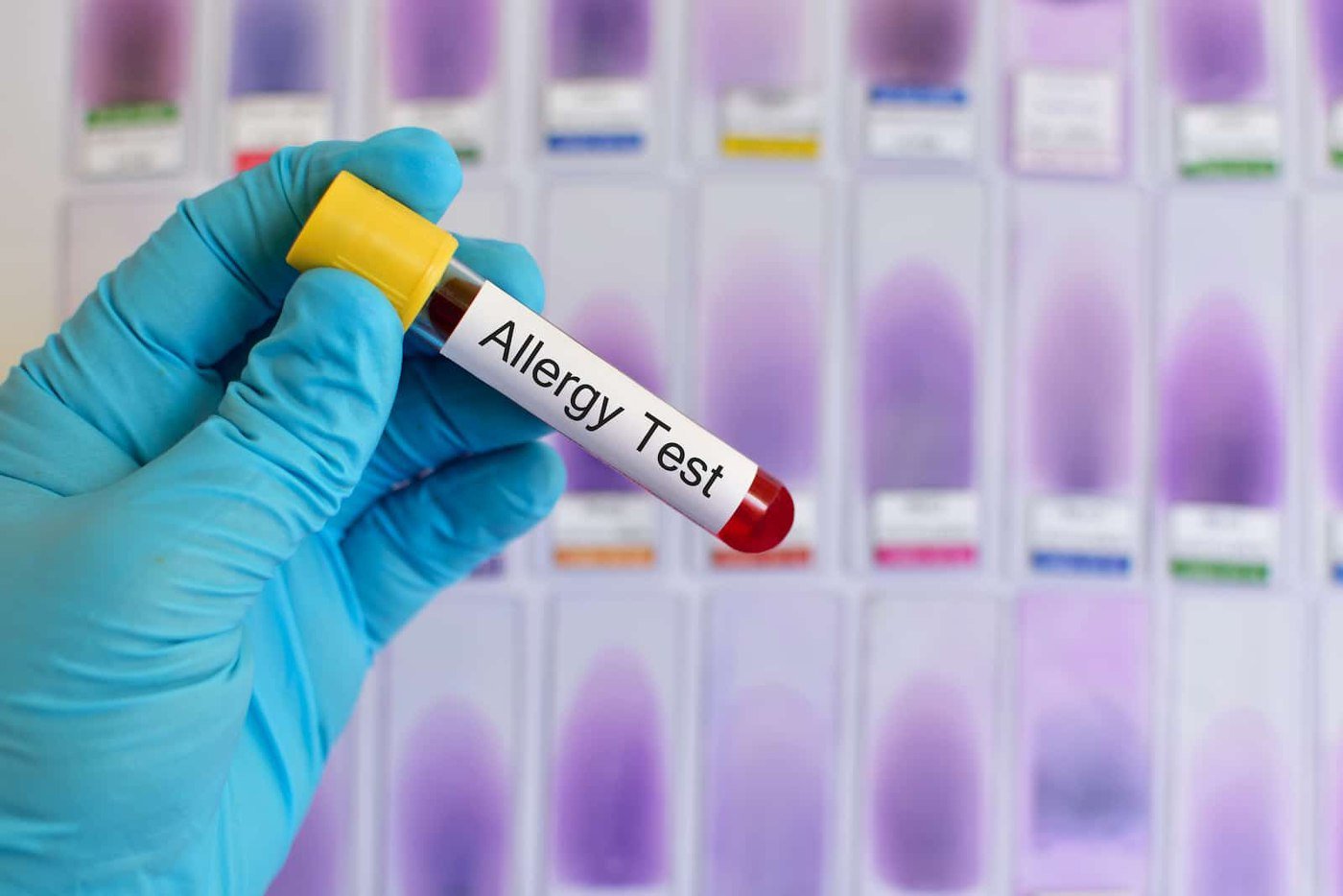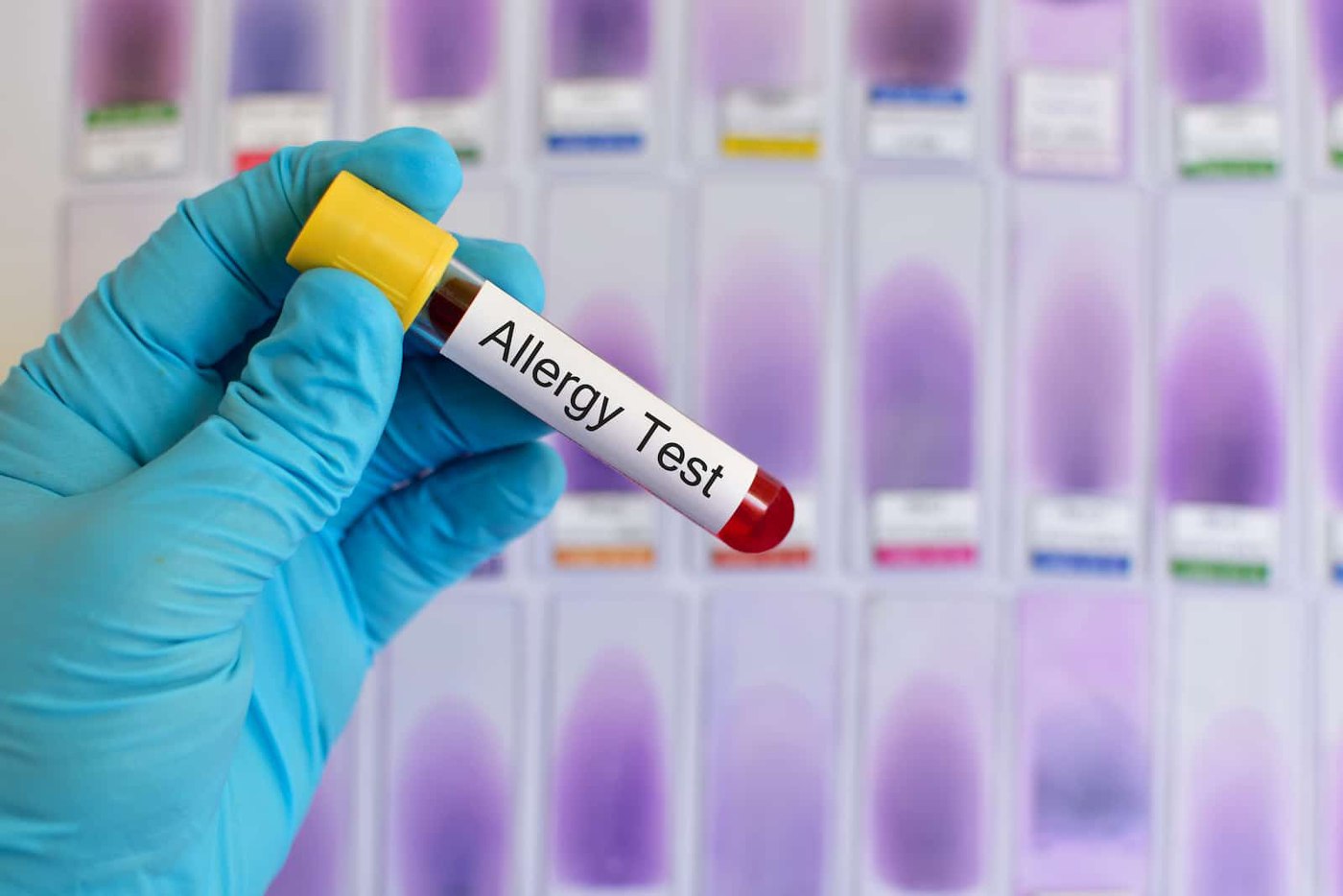Allergy Blood Test: Indications, Process, and Results
July 5th, 2022 | 4 min. read


More than 50 million Americans experience allergies every year, according to the Allergy and Asthma Foundation of America (AAFA). Seasonal changes can cause people to get runny noses, itchiness, or watery eyes due to exposure to a range of things from pet dander, dust, or tree pollen. Seasonal allergies are a common type of allergy, but there are many more. A variety of allergic reactions from mild or severe can also occur due to consuming certain foods or beverages like peanuts, shellfish, or milk to name a few.
Allergy blood tests are a diagnostic tool that can help you and your doctor figure out what is causing your allergies. Following your doctor's diagnosis plan is the first step toward treating your allergy, reducing your symptoms, and keeping you safe (in the case of a severe allergy). Below we go over information about allergy blood testing, including the details of what an allergy blood test entails, indications for an allergy blood test, allergy blood test procedure, and more.
What is an Allergy Blood Test?
Allergy blood tests use a small sample of your blood to determine what is causing your allergies. More specifically, it measures the amount of an antibody in your blood referred to as immunoglobulin E (IgE). Generally, people with allergies have more IgE in their blood.
Antibodies are immune proteins that are released when your immune system identifies a foreign invader like a virus or bacteria. Usually, antibodies help protect your body from infection; however, if you have an allergy, your body misidentifies the substance as a threat and releases antibodies (IgE) in response, causing an allergic reaction. Allergic reactions result in a host of uncomfortable and bothersome symptoms, and in some cases, they can be severe and life-threatening.
What Are the Types of Allergy Blood Tests?
The two main types of allergy blood tests are the following:
- Total IgE Test: The total IgE allergy blood test is used to determine the total amount of IgE in your blood.
- Specific IgE Test Test for specific allergen-related IgE concentrations in the blood. A different specific IgE test is used for each allergen so that the doctors can determine what specifically is causing your allergies.
Indications for an Allergy Blood Test
The indications for an allergy blood test are allergy symptoms, including the following:
- Runny or stuffy nose
- Throat tightness
- Abdominal pain
- Eczema
- Teary, itchy eyes
- Hives
- Wheezing
- Sneezing
- Diarrhea
- Coughing
- Shortness of breath
- Vomiting
Whether you experience any of the symptoms due to seasonal changes or after exposure to certain foods and beverages, it is best to have your allergy diagnosed and treated as soon as possible. Some people think that mild allergies can be ignored or self-diagnosed, but it is always important to see a doctor, regardless of your allergies. Allergic reactions can change and grow more severe with time, so the sooner you get your problem diagnosed, the better off you’ll be.
Schedule an allergy blood test today
Allergy Blood Test vs Allergy Skin Test
As discussed, an allergy blood test uses a small sample of blood to test for antibodies that predict whether or not a patient has an allergy.
An allergy skin test, on the other hand, uses small pricks on the skin to introduce allergies to determine if they are allergic to certain substances. If you are allergic to a substance, there should be a reaction on the skin in which case the allergen can be identified. While allergy skin tests are extremely common and do not require drawing blood like allergy blood tests, they are not suitable for all patients, and may not be recommended due to certain circumstances.
Your doctor may recommend an allergy blood test over an allergy skin test if you have any of the following conditions:
- Skin conditions like contact dermatitis, which flares up from contact with certain irritants
- Specific medications, eczema, or psoriasis
- Hay fever (allergic rhinitis), which is often caused by pollen, exposure to pet dander, hair, saliva, or mold
- Severe allergic reactions like anaphylaxis, a severe and sometimes fatal reaction to an allergen that can cause the airways to close
- Heart conditions
- Asthma
- Intolerances to the pricks required by the allergy skin testing
What Are You Looking for in an Allergy Blood Test?
In an allergy blood test, you are looking for either high levels of IgE in the blood (total IgE test), or IgE reacting to small amounts of allergens in the blood (specific) IgE blood test. This will help to determine that you have an allergy and/or what specifically you’re allergic to.
Allergy Blood Test Results
The results of an allergy blood test depends on the type of allergy blood test you received. For example, the total IgE allergy blood test determines that you do have some kind of allergy. However, they do not provide information regarding your specific allergy, i.e., what you are allergic to and how allergic you are.
If the allergy blood test shows that you have a high level of IgE in your blood, the doctor will know that you are allergic to something and may continue with more steps to determine what in particular you are allergic to, how allergic you are, and from there move on to treatment options.
A specific IgE allergy blood test will diagnose you with a specific allergy. In other words, it will tell you and your doctor what you are allergic to, rather than just determining that you are allergic to something. The results of this test also do not show how allergic you are to a given allergy.
Once your doctor diagnoses that you have an allergy (either to a specific allergen from a specific IgE test or an allergy to an indeterminate allergen), your health care professional may recommend their own treatment plan for you or they will suggest that you go to an allergy specialist. This may include steps to reduce exposure to the allergen(s) along with medication and other steps targeted at reducing your symptoms.
How Do I Schedule a Blood Allergy Test?
If you experience allergy symptoms and believe you might have an allergy, the first and best step you can take is by scheduling an appointment with a healthcare professional, especially one that specializes in allergies.
At Houston Ear, Nose, Throat, and Allergy, we can provide you with a number of expertly trained and experienced allergy specialists to help you diagnose and treat your allergy problem. Houston Ear, Nose, Throat, and Allergy will help you along every step of the way through your allergy diagnosis and treatment process, and all of our patients walk away happier, better informed, and safer than when they arrived.
When thinking about allergies, it’s important to keep in mind that they are not only an annoyance to some people, but they can also be dangerous and life-threatening. Previously mild allergic reactions can evolve into severe and even fatal ones.
Additionally, allergies can spring up and develop over time, so just because you weren’t allergic to something before, does not mean you aren’t allergic to it now. Therefore, no allergy, no matter how mild, should go undiagnosed and untreated. Make sure to get professional help as soon as possible with one of our many top-notch health care professionals at Houston Ear, Nose, Throat, and Allergy. Contact Houston ENT & Allergy today.
Patricia A Leonard, MD is Board Certified in Allergy and Immunology, and has been practicing allergy treatments in the Houston community for 10 years.
Topics:
